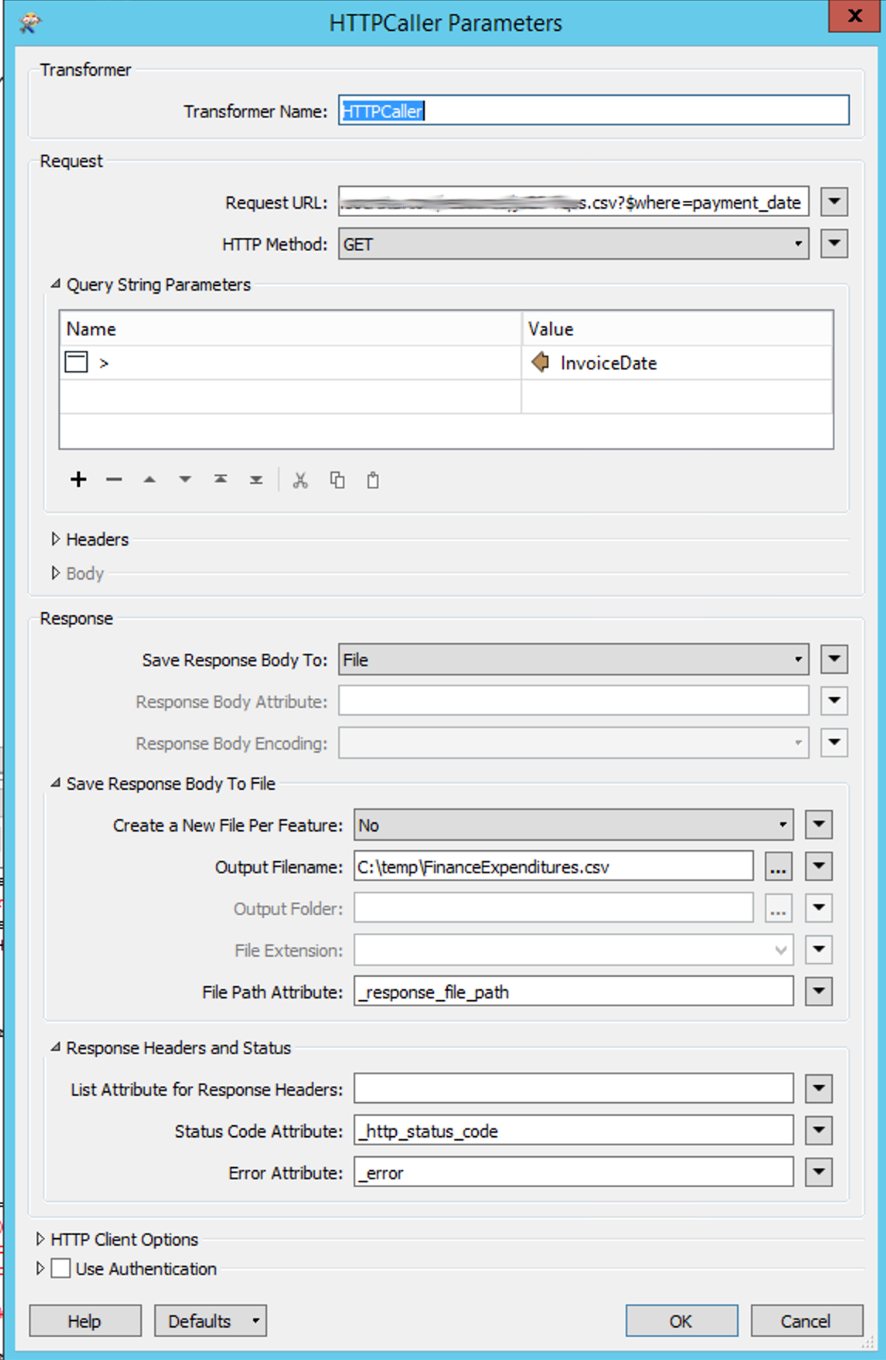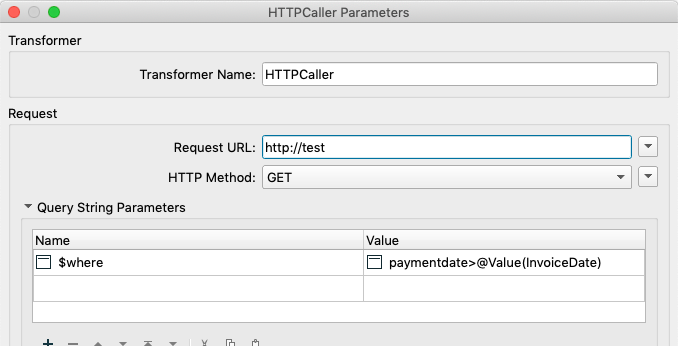I'm trying to download a filtered csv from a URL but the HTTPCaller is transforming the URL in a weird way by adding codes for single quotes, greater than signs, and spaces in the URL. The previous step in my model is a SQLCreator that queries a table in my database to figure out what the latest payment_date is, then returns that date formatted as: '2019-09-20T00:00:00.000'
In the HTTPCaller, I have the following in the Request URL: https://*baseURL*.csv?$where=payment_date
...and the following as a Query String Parameter: > (in the name column) and InvoiceDate (in the value column but set as the result of the query above.
The URL I need to form with this is:
https://*baseURL*.csv?$where=payment_date>'2019-09-20T00:00:00.000'
Instead, what I'm getting is this which doesn't work in a browser or in FME:
https://*baseURL*.csv?$where=payment_date&%3E=%272019-09-20T00%3A00%3A00.000%27'
The best I can tell is that FME is translating the symbol for greater than into &%3E= , the symbol for a single quote as %27 , and the symbol for colon as %3A. This doesn't work with the source that I'm trying to pull from. Is there a way to force the HTTPCaller to keep the text as is without changing it?










